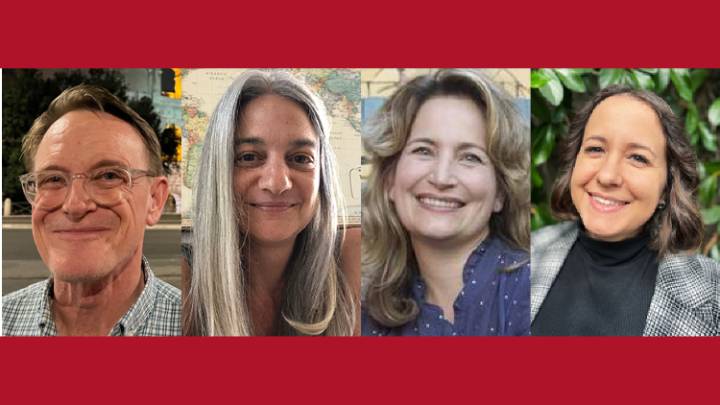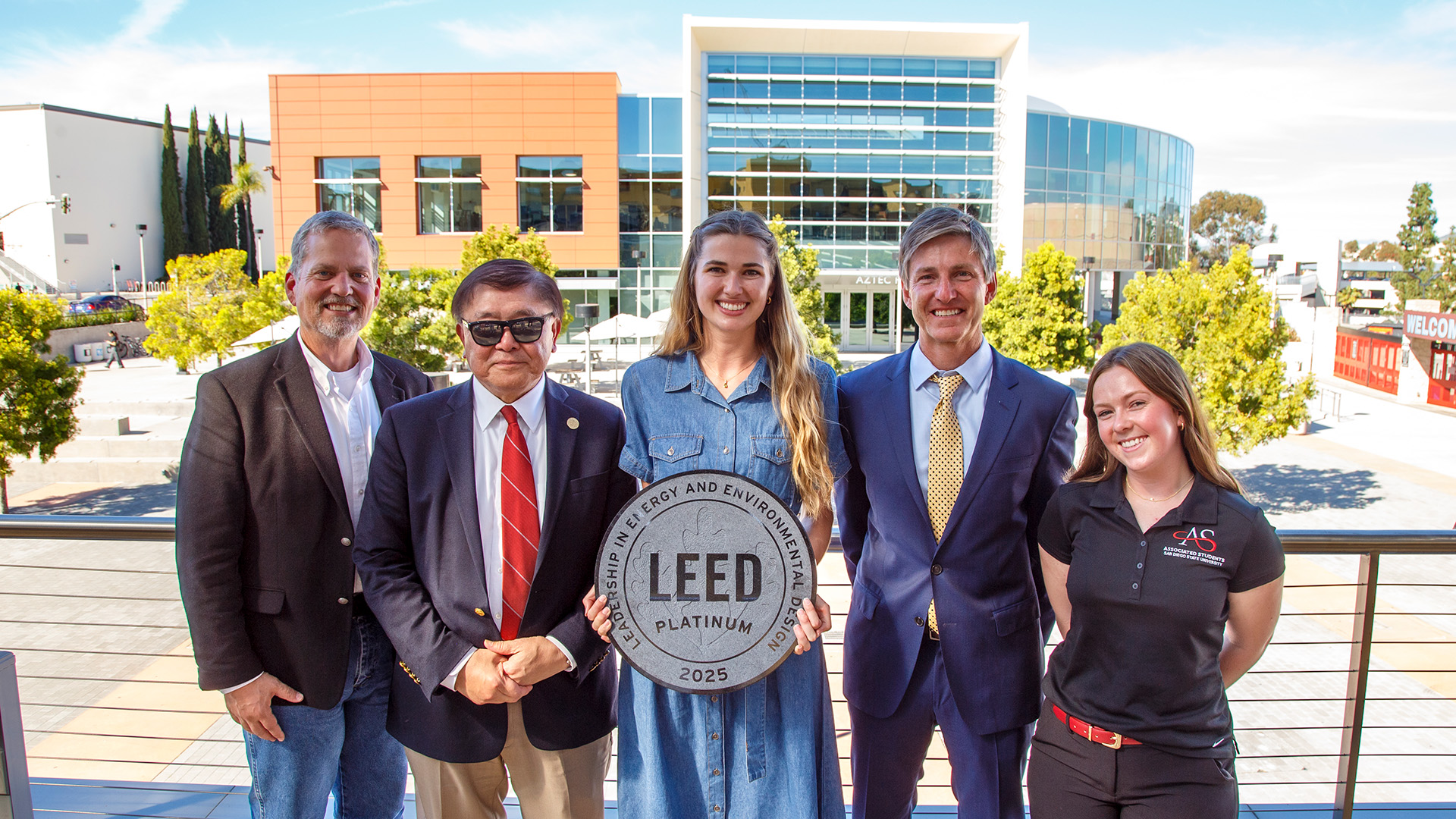SDSU faculty receive awards to advance research in humanities
The NEH awards are for research and programs at Hispanic-Serving Institutions.

New National Endowment for the Humanities (NEH) grants for 260 projects across the country totaling $33.8 million have been awarded, and four faculty from the San Diego State University College of Arts and Letters (CAL) are recipients.
Walter Penrose Jr., associate professor of history, and Amira Jarmakani, professor of women’s studies, are recipients of the Division of Research Awards for Faculty. The award “strengthens the humanities at Hispanic-Serving Institutions by encouraging and expanding humanities research opportunities for individual faculty and staff members,” according to the NEH.
Erika Robb Larkins, director of the Behner Stiefel Center for Brazilian Studies, and Kristal Bivona, co-director, received a Division of Education Humanities Initiatives at Hispanic-Serving Institutions award. This grant funds educational resources, programs, curricula, and other projects to enhance teaching and learning in the humanities.
“Work in the humanities is central to the mission of our college and the university,” said CAL Interim Dean Ronnee Schreiber. “The Awards for Faculty supports our extraordinary CAL faculty who will use the funding to complete book projects based on crucial investigations of history and race. The Humanities Initiatives award will strengthen programming of the already flourishing Behner Stiefel Center for Brazilian Studies. We are extremely proud of these accomplishments.”
Penrose will use the grant to continue research on his forthcoming book on Artemisia II, celebrated as one of the most virtuous of women from antiquity to the early modern period. “In looking at the Amazons in ‘Wonder Woman’ for a 2019 article that I wrote, I noted that the history of feminism was understood by U.S. historians to have begun in the 19th century,” Penrose said. “Looking further afield, my investigations revealed a different picture: feminism in Europe had roots going back to the 15th century Renaissance, when Christine de Pisan employed ancient examples of smart, capable, and powerful women such as Artemisia and Sappho to argue against the intense misogyny of her times.”
Inspiration for the book subject comes from Penrose’s longtime interest in feminism, instilled in him by his dissertation adviser at the City University of New York Graduate Center, Sarah Pomeroy, whose groundbreaking work focused on correcting omissions of ancient women in the historical record.
Penrose intends to write the first ever monograph-length work exploring the life and legacy of Artemisia II — to correct the historical record of this powerful woman who lived in the fourth century BCE.
Jarmakani will work on her forthcoming book, “Weapons of Mass Dissemination: Apprehending Digital Anti-Muslim Racism,” which investigates how viral memes, images, and stories that portray Muslims as a dangerous threat to the U.S. can perpetuate gendered, anti-Muslim racism.
“I have long been interested in, and especially troubled by, the way that racist representations can have material, and even deadly, ramifications for those who are associated with them,” Jarmakani said. “My first and second books examine how orientalist representations in U.S. popular culture have helped fuel the war on terror, offering spurious justification for the invasions of Iraq and Afghanistan by leaning on stereotypical tropes about terrorism and Islam as oppressive to women.“
In her new book project, Jarmakani, brings into conversation how big data technologies weaponize and fuel hate to spread disinformation on the internet.
Robb Larkins and Bivona’s project titled, “Building the Humanities through Brazilian Studies” is a three-year curriculum development and public engagement project on the humanistic study of Brazil, foregrounding the cultural production of underrepresented authors, artists, filmmakers, and scholars.
“Funding from the NEH will enable us to advance our humanities curriculum through three main project components,” Bivona said.
“First, we're collaborating with colleagues from across the university to create core classes focused on cultural production by Black and Indigenous Brazilians as well as courses that exemplify the important role of the humanities in fostering a deep understanding of environmental issues,” Bivona said. “Second, we will promote academic engagement that fosters the development of critical Brazilian studies via scholarly and creative events on campus. Third, we will disseminate project outcomes to the public through the expansion of the Center for Brazilian Studies’ award-winning digital humanities platform, the Digital Brazil Project.”
Collaborating in the project are Esme Murdock and Olivia Chilcote (American Indian Studies); Kishauna Soljour (Classics and Humanities); Daniela Gomes (Africana Studies); and Gillian Sneed (Art and Design).
READ: NEH Grant Awards List



